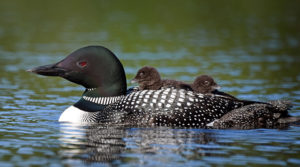
In Manchester, New Hampshire, Boston Globe columnist Derrick Z. Jackson opened with lyrics from the play “Hamilton,” which he customized to columnists. It was an apt segue into a talk by the Pulitzer finalist and multiple-award-winning writer about how he has kept readers engaged. He shared three valuable insights into his career longevity.
Write what you are passionate about.
Write toward interconnectedness.
Expand your range.
Conference attendees learned how Jackson applied these strategies to his own column, which has spanned sports, race issues, climate change, and puffins.
As an African-American columnist, Jackson knows there are presumptions by others on his topics. For example, race is expected. Bird watching is not. But one’s writing focus changes with self-growth.
“Journalists of color should pursue whatever they want, whether it’s floral arranging or hardcore disparities about alcohol on Indian reservations. Every writer comes to journalism with a dream. It takes you places you never expected to go,” said Jackson, who is a contributing essayist to The Boston Globe, ESPN’s The Undefeated, and The American Prospect.
Sports is where Jackson began his writing career. As a sports columnist, he was aware of racial disparities in academics among players.
Interconnectedness came about by writing about the intersection of race and sports. As an example, for 19 years he featured his annual Graduation Gap Bowl, comparing the graduation rates between black and white players of 27 college sports teams. Readers tuned in eager to see how their alma maters ranked. For his work in giving diverse demographics a voice over many years, he has won multiple awards from the National Association of Black Journalists, the Education Writers Association, and the National Lesbian and Gay Journalists Association.
His career took a surprising direction and Jackson credits his wife, Dr. Michelle Holmes, for introducing him to the marvels of nature. An avid camper, she has hiked sections of the Appalachian Trail. Together as Scoutmasters they’ve led scout troops from urban areas into wilderness beauty. He wrote about that.
Nature deepened his interest in climate change, environmental justice, and energy, and he wrote about that. Jackson is a writing fellow with the Union of Concerned Scientists and was a Fall 2016 fellow at Harvard Kennedy School of Government writing on the Flint water crisis in Michigan.
He incorporated photography into his love for nature. His pictures are featured in a book he co-wrote with scientist Stephen W. Kress, “Project Puffin: The Improbable Quest to Bring a Beloved Seabird Back to Egg Rock.”

Loons photographed by Derrick Jackson
Jackson’s photographs of wildlife, landscapes, and the presidential campaign images of Barack Obama have been exhibited by Boston’s Museum of African American History and Harvard University’s Graduate School of Education. He was a 2013 and 2012 finalist in Outdoor Photographer magazine’s The American Landscape Contest.
Expand your range. From sports to race to climate change, Jackson has broadened his passions, taking readers along on his lifelong journey, with a writing goal toward interconnectedness.
“If they like my columns about puffins, they might read my columns about racism or any other ‘ism,'” said Jackson.
To begin, Jackson customized a song from “Hamilton” to columnists. The end of his talk reminded me of an old saying, “A man’s reach must exceed his grasp or what’s a heaven for?”
I’d tailor it to say, “One’s reach must exceed her grasp, or what’s a column for?”
***

Email Suzette Standring: suzmar@comcast.net She writes and teaches writing, and has broadened her career to include NSNC Executive Director.
 In Manchester, New Hampshire, Boston Globe columnist Derrick Z. Jackson opened with lyrics from the play “Hamilton,” which he customized to columnists. It was an apt segue into a talk by the Pulitzer finalist and multiple-award-winning writer about how he has kept readers engaged. He shared three valuable insights into his career longevity.
In Manchester, New Hampshire, Boston Globe columnist Derrick Z. Jackson opened with lyrics from the play “Hamilton,” which he customized to columnists. It was an apt segue into a talk by the Pulitzer finalist and multiple-award-winning writer about how he has kept readers engaged. He shared three valuable insights into his career longevity.


